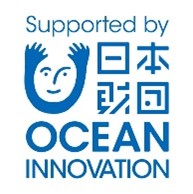Omega Simulation to Participate in Oil and Gas-Related Decarbonization Projects for the Nippon Foundation - DeepStar Joint Research and Development Program
Omega Simulation Co., Ltd., a subsidiary of Yokogawa Electric Corporation, announces that its nanofluids for CO2 capture from flue gases project proposal has been selected by the Nippon Foundation to receive funding as an Offshore Oil and Gas-Related Decarbonization Promotion Project through the Nippon Foundation – DeepStar Joint Research and Development Program. The company has also received a contract from program participant Aonbarr Inc. (headquarters: Hamamatsu, Shizuoka Prefecture, Representative Director and President: Shigetoshi Sakurai) to carry out development work for a carbon dioxide & greenhouse gas capture using metal-organic frameworks (MOFs) project. Both of these projects will commence on June 1, and will involve the development of fundamental technologies that are needed to make progress with decarbonization.
Overview of Omega Simulation’s nanofluid project
Nanofluids for CO2 capture from flue gases
- Objective
- Development of high-efficiency CO2 capture technology
- Background
- The use of amine solvents is a promising technology for the capture of CO2 emitted during the combustion process. Although such solvents have a low CO2 absorption rate when used alone, it has been found that this rate can be drastically increased by adding fluids that contain nanometer-sized particles.
- Method
-
Omega Simulation will collaborate with the Colorado School of Mines*2 to conduct demonstration experiments and model the capture of CO2 from flue gases.
- Experiments will be run in which nanofluid is added to an amine solvent to see how this alters the amount of CO2 that is absorbed.
- Based on the data from each experiment, custom models will be created for simulations that show how the absorption of CO2 increases over time as nanofluid is added to the amine solvent.
- Utilizing Omega Simulation‘s Mirror Plant*3 technology, a digital twin representation of a system environment will be constructed that allows comparative analyses with conventional processes.
Overview of MOF project for which Omega Simulation will provide development support
Carbon Dioxide & Greenhouse Gas Capture using Metal Organic Frameworks (MOFs)
- Objective
- Development of technology involving the use of MOFs for the high-efficiency, low-cost capture of CO2 from offshore natural gas wells, which present an environment where natural gas and CO2 are intermixed and CO2 concentrations vary.
- Background
- A high-efficiency, low-cost CO2 capture technology that can replace the use of conventional amine solvents is desirable. New MOF materials were first developed in Japan have attracted considerable attention as of late due to their having properties that enable them to absorb large volumes of target gases. It is also hoped that they can also be used in other applications, including direct air capture, in which CO2 is captured directly from the atmosphere, and in the separation of other gases such as methane.
- Method
-
Omega Simulation and the Colorado School of Mines will be partly responsible for activity (1) and fully responsible for activity (2):
- Design and performance analysis of MOFs that have a high CO2 absorption capacity
- The performance of simulations for the basic design of modeling technology that can show changes in MOF characteristics over time
- Implementation of market surveys followed by pilot experiments to evaluate feasibility and effectiveness
- A global offshore technology development consortium based in Houston, Texas. Companies from around the world participate
- A public university in Golden, Colorado, that offers programs in engineering and applied sciences and is focused on the development and management of the earth's natural resources
- A plant simulator with an online connection to an integrated production control system that provides an accurate real-time online reproduction of internal conditions at an operating plant. This can, for example, faithfully reproduce gas concentrations and continuous state changes over time
About the Nippon Foundation - DeepStar Joint Research and Development Program to Promote Decarbonization in the Field of Offshore Oil and Natural Gas

Based on a memorandum of understanding between the Nippon Foundation and the DeepStar consortium that was concluded in December 2021, and with funding provided by the Nippon Foundation, the two organizations are working together to promote the development of decarbonization technologies.
Aonbarr Inc.
Under the banner of "Making Japan a resource-rich country", Aonbarr offers integrated solutions for applications such as CO2 sequestration, hydrogen production, and the harvesting of useful materials from seawater. For more information, visit
https://www.aonbarr.co.jp/en/home/
The names of corporations, organizations, products, services and logos herein are either registered trademarks or trademarks of Yokogawa Electric Corporation, Omega Simulation Co., Ltd., or their respective holders.
Copyright © Omega Simulation Co., LTD. All Rights Reserved.
